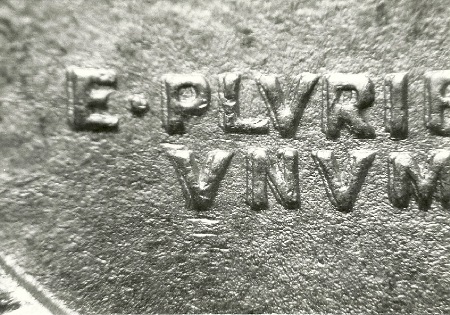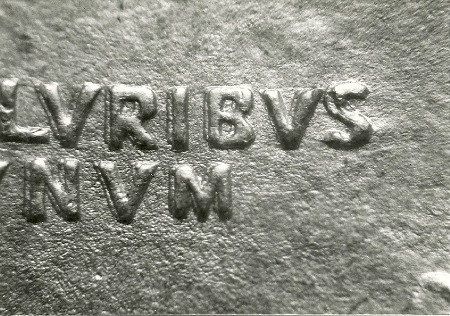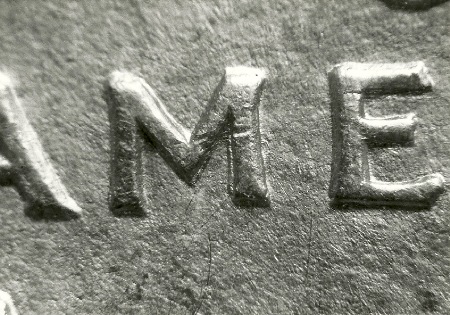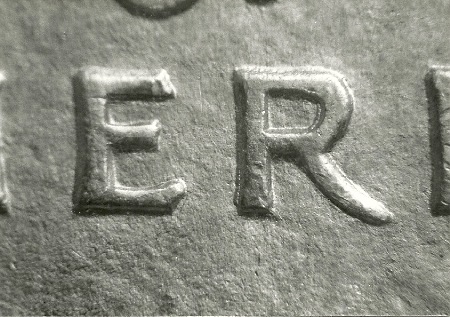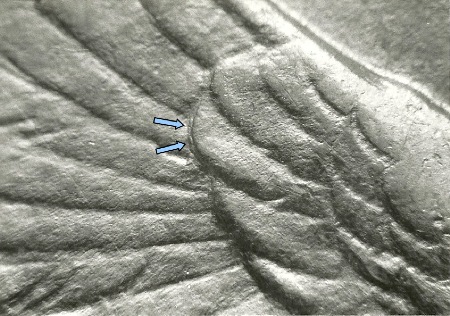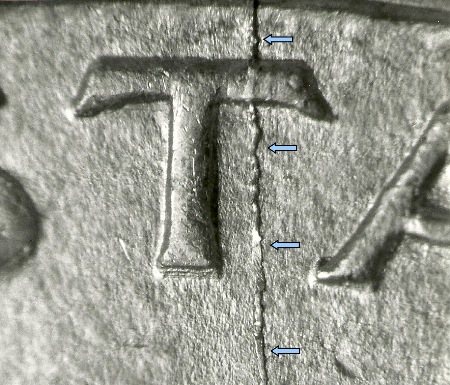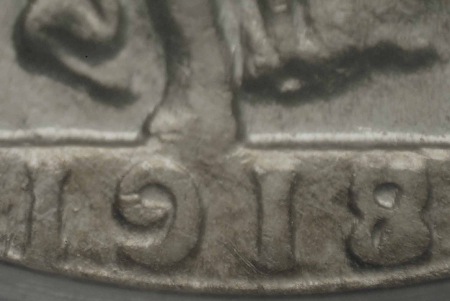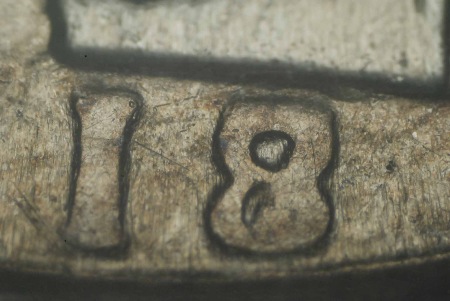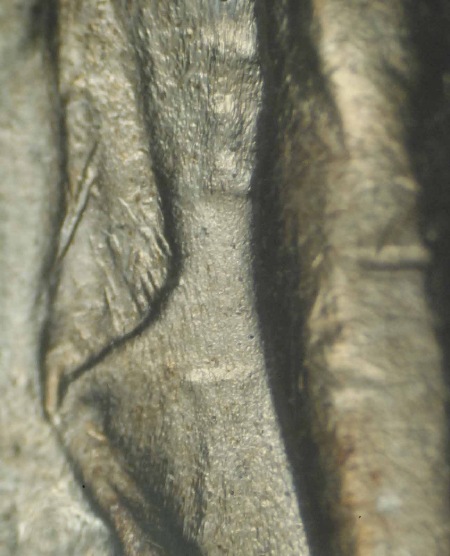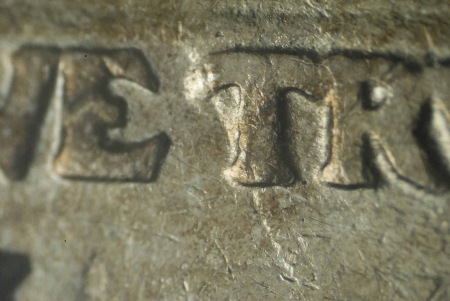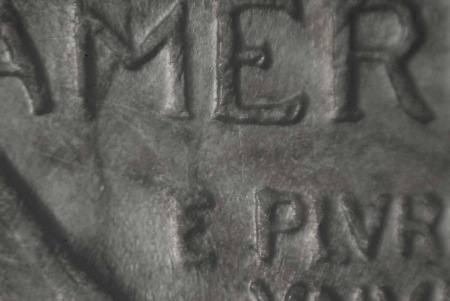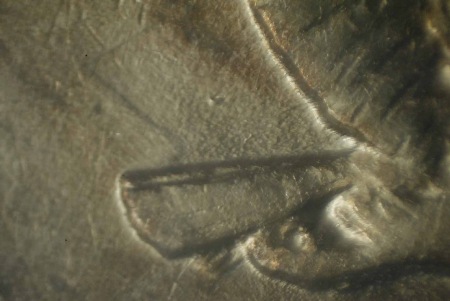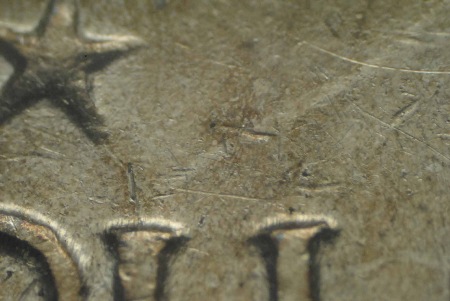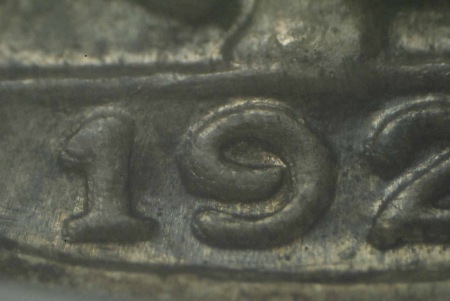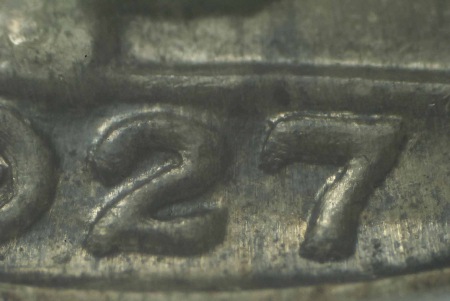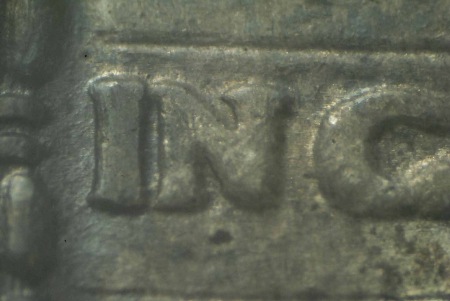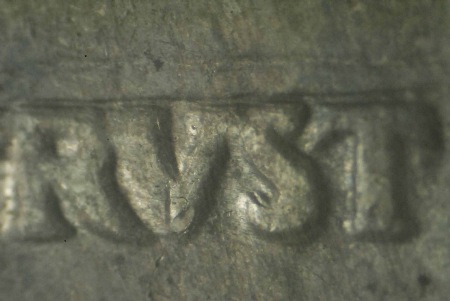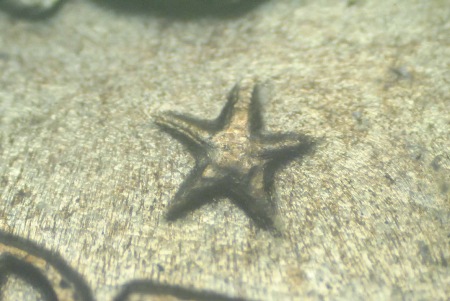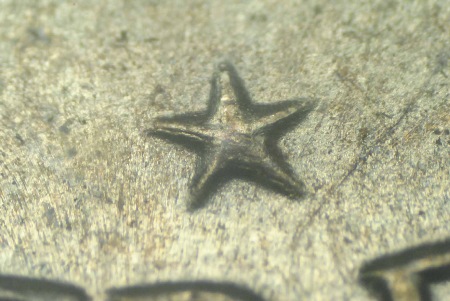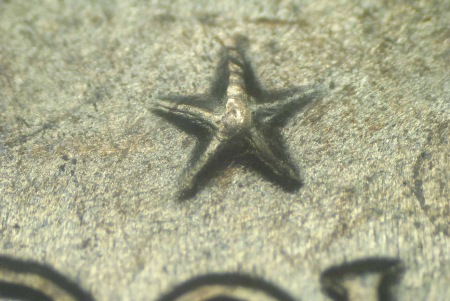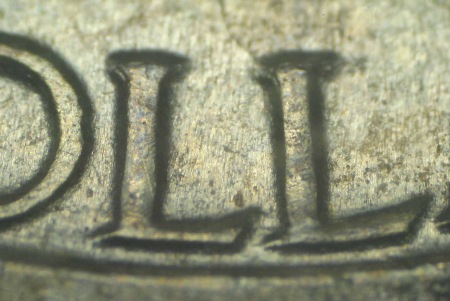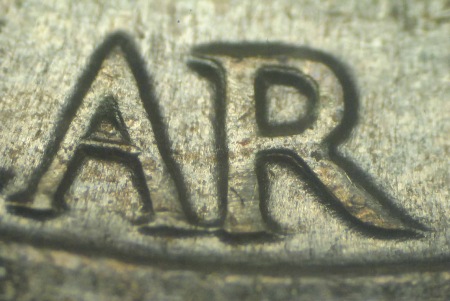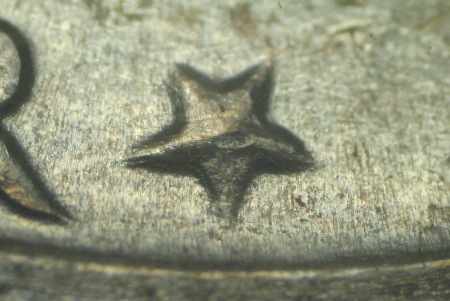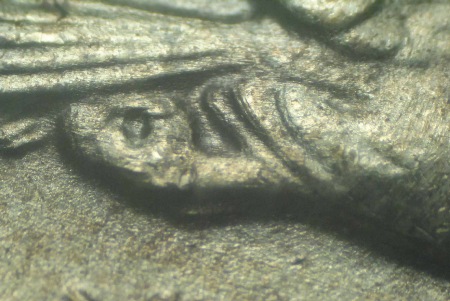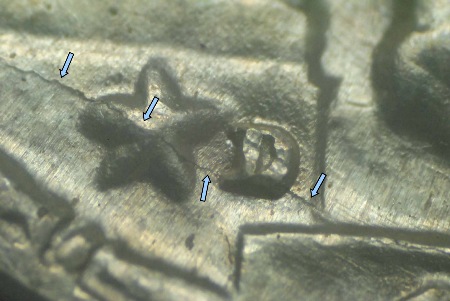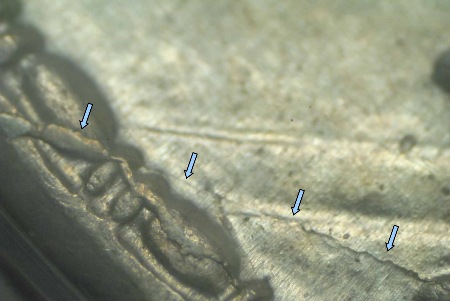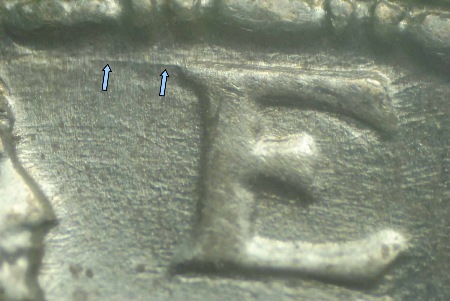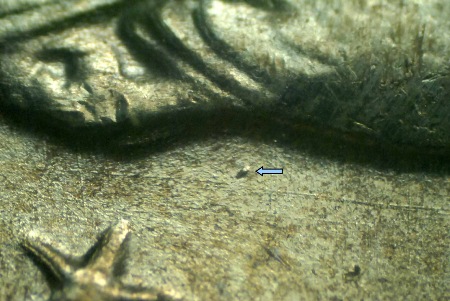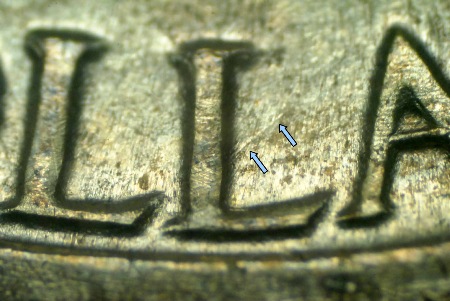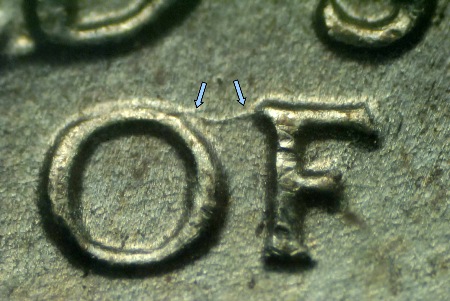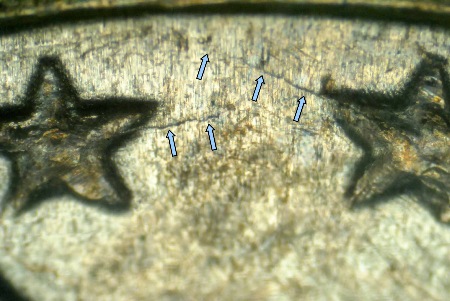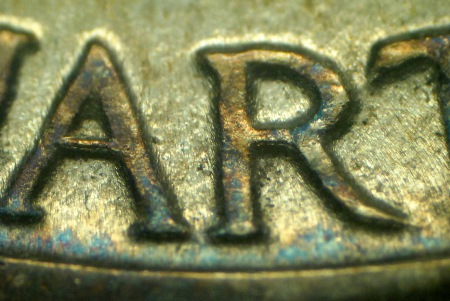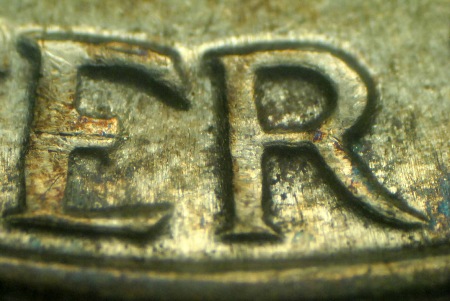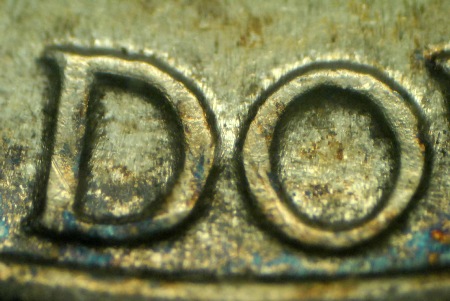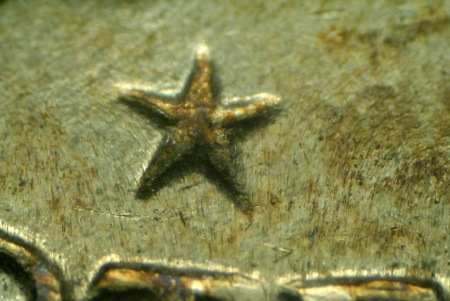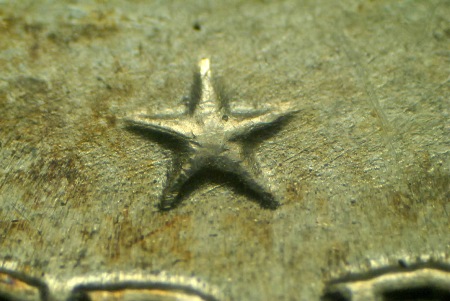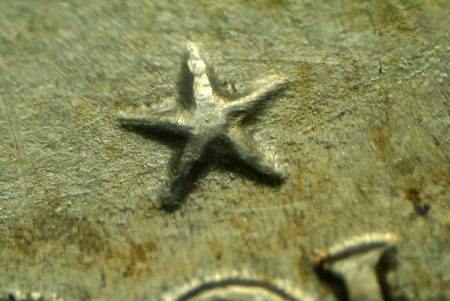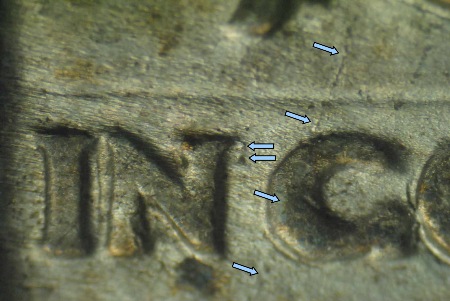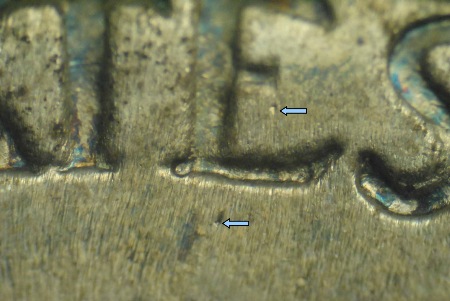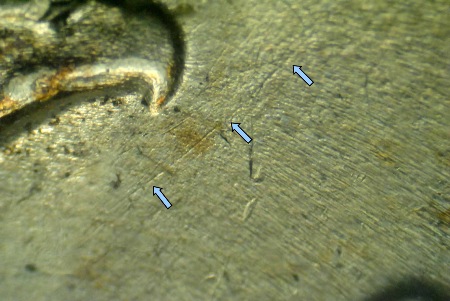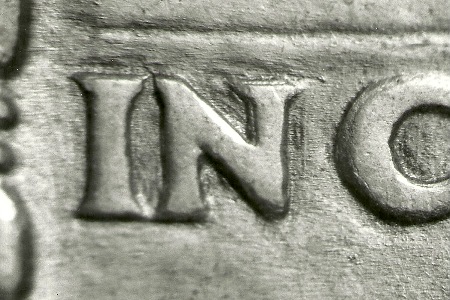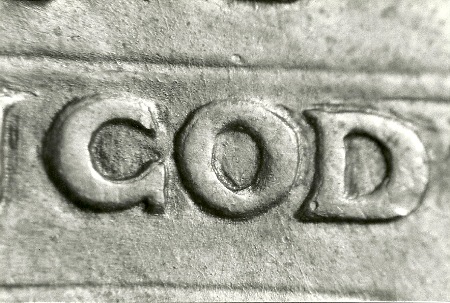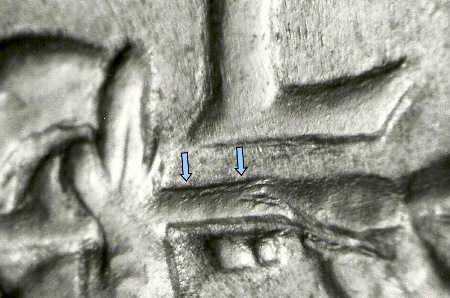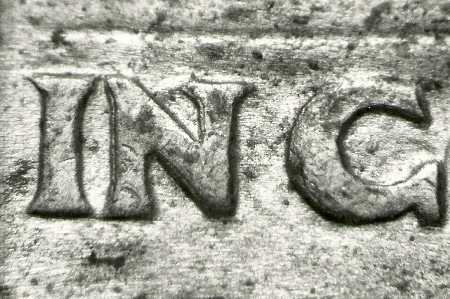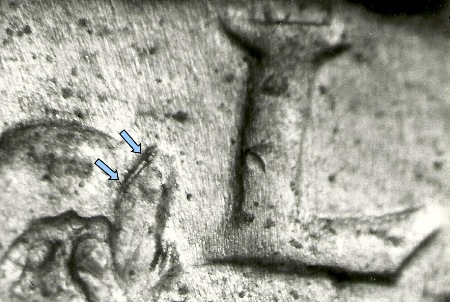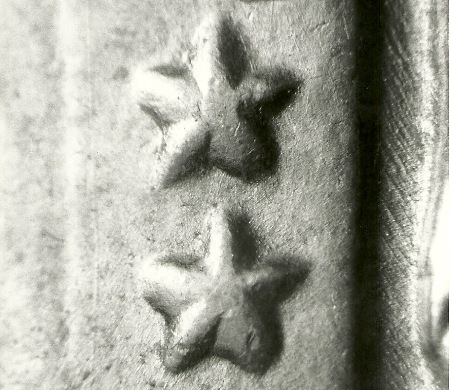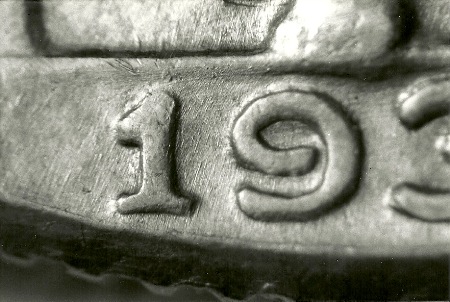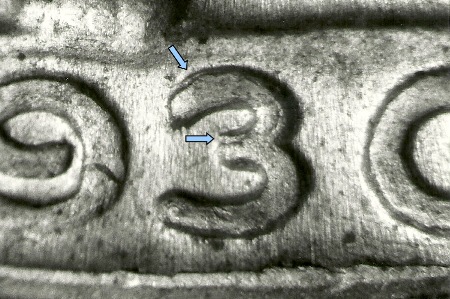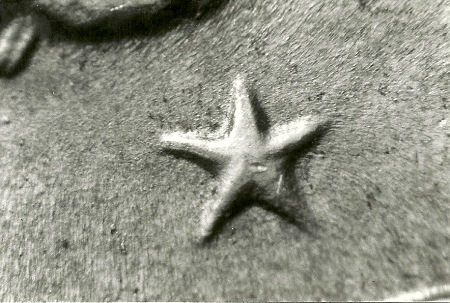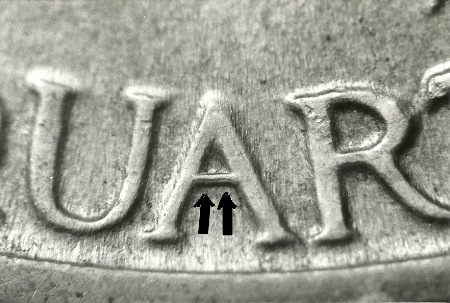


 |
 |
 |
 |
 |
 |
 |
 |
 |
 |
 |
 |
 |
 |
 |
 |
 |
 |
 |
 |
 |
 |
 |
 |
Because of the extremely limited number of Standing Liberty Quarter doubled die varieties, they will all be illustrated on this single page. If the list should ever expand significantly, the varieties will be assigned to pages based on their date and mint mark as is done with other denominations and series. 1917-D 25¢ WDDR-001 "Best Of" Variety Description: A Class IV spread to the east shows on EPU, the MER of AMERICA, the lower left wing feathers, and some inner feather details on the right wing. Die Markers: Obverse: Type 1 obverse. Reverse: A die crack runs from the I in AMERICA to the rim through the 1st T in STATES. Submitted By: John Holton Cross References: CONECA: 1-R-IV, Cherrypickers: FS-25-1917D-801
1918-S 25¢ WDDO-001 8/7 Overdate "Best Of" Variety Description: A working die was created when a 1918 hub was used to make an impression in a working die that already had the 1917 date creating an 8/7 overdate. Die Markers: Obverse: A die clash mark of the E in EPU protrudes from the right knee. A die clash mark of the vertical bar of the E in AMERICA can be found below the clash mark at the knee. Die clash marks can be found in the lower right folds of the gown to the left of the 3rd and 4th stars from the bottom. A die clash mark of the eagle’s left wing runs from NW to SE through the first T in TRUST. Reverse: A clash of the right leg runs through the M in AMERICA and to the left of the E in EPU. A clash of the shield can be found above the LLAR in DOLLAR. A clash of the right arm can be found above the eagle’s tail feathers. Submitted By: Robert H. Knauss Cross References: CONECA: 1-O-III, Cherrypickers: FS-25-1918S-101 (008.5), Breen: #4235
1927 25¢ WDDO-001 Description: A Class II spread towards the center shows on IN, TRUST, the date, the bottom of the gown, and the bottom left and bottom right stars. Class VI extra thickness shows on IGWT, LIBERTY, the stars, and the date. Die Markers: Obverse: None significant. Reverse: None significant. Submitted By: Robert H. Knauss Cross References: None known
Note the strong notching on the bottom left of the S in TRUST. 1928-D 25¢ WDDR-001 Description: A Class V CCW spread from a pivot at 11:00 shows on the three stars below the eagle, the LLAR of DOLLAR, the outer edge of the right wing feathers, the tips of the tail feathers, the right talon, the leg feathers above the right talon, and the star to the right of the R in DOLLAR. Die Markers: Obverse: A die crack runs WNW from the top left of the pedestal through the D mint mark and through the bottom left star and out to the rim. A die chip can be found on this die crack at the rim. A die scratch runs west from the top left of the E in LIBERTY. Reverse: A die gouge can be found in the field below the upper part of the eagle’s right leg. A die scratch runs NE from the center right of the 2nd L in DOLLAR. A die crack connects the tops of the O and F in OF. A die crack runs from the right side of star #6 while another runs from the left side of star #7 out to the rim. Submitted By: Robert H. Knauss Cross References: CONECA: 1-R-II Comments: This variety was first reported in the June 16, 1997 issue of Coin World. It was reported in an article by staff writer William T. Gibbs that the variety was found by Tony Cass of Ohio, and confirmed by ANACS grader Michael Fahey.
1929-D 25¢ WDDR-001 Description: A close Class II spread towards the center shows on the three stars below the eagle and slightly on the letters of QUARTER DOLLAR. Die Markers: Obverse: A die crack runs WSW from the extended right arm through the left side of the D in GOD. A die gouge can be found to the right of the top of the N of IN. Reverse: Die gouges can be found inside the lower E in STATES as well as below the E in STATES. A die scratch runs from SW to NE below and to the right of the eagle’s head. Submitted By: Robert H. Knauss Cross References: None known
1930 25¢ WDDO-001 Description: A Class V CCW spread from a pivot at about 4:00 shows on IN GOD, the LIB in LIBERTY, and slightly on the olive branch. The obverse master die doubling known for this date can also be seen. Die Markers: Obverse: Short die scratches run north from the bottom left star. The 3 in the date was either repunched or re-engraved on the master die. Reverse: The reverse shows the master die doubling that is known for this date. Submitted By: Greg Armstrong Cross References: CONECA: 1-O-V
1930 25¢ WDDO-002 Description: A close Class II spread towards the center shows on IN GOD, the L of LIBERTY, and the leaf at Liberty’s hand. The obverse master die doubling known for this date can also be seen. Die Markers: Obverse: The 3 in the date was either repunched or re-engraved on the master die. Horizontal die scratches can be found between the upper 3 and 0 in the date. Reverse: The reverse shows the master die doubling that is known for this date. Submitted By: Barry A. Kittoe Cross References: None known
1930 25¢ WMDO-001 Master Die Doubling Description: Class VI extra thickness shows on the stars, the olive branch, the 19 in the date, and slightly on the letters of LIBERTY. The 3 in the date is strongly doubled, most likely the result of re-engraving of that digit on the master die. Die Markers: Obverse: Die markers will vary on the different working dies. Reverse: Die markers will vary on the different working dies. The reverses should show the master die doubling known for this date. Submitted By: Barry A. Kittoe Cross References: CONECA: MD-1-O-VI+VII Comments: Because the doubling was on the master die, it was transferred to all working hubs and working dies produced that year for the Standing Liberty quarters. As such, it can be seen to some extent on all 1930 dated quarters. The amount of doubling visible may vary slightly from coin to coin due to working hub wear, working die wear, and wear on the coins themselves.
1930 25¢ WMDR-001 Master Die Doubling Description: A close Class II spread towards the center shows on some of the letters of QUARTER DOLLAR. The three stars under the eagle show tripled left points. Die Markers: Obverse: Die markers will vary on the different working dies. The obverses should show the obverse master die doubling known for this date. Reverse: Die markers will vary on the different working dies. Submitted By: Greg Armstrong Cross References: CONECA: MD-1-R-II Comments: Because the doubling was on the master die, it was transferred to all working hubs and working dies produced that year for the Standing Liberty quarters. As such, it can be seen to some extent on all 1930 dated quarters. The amount of doubling visible may vary slightly from coin to coin due to working hub wear, working die wear, and wear on the coins themselves.
| ||


